5 reasons to visit the Stieglitz Academy Museum (PHOTOS)
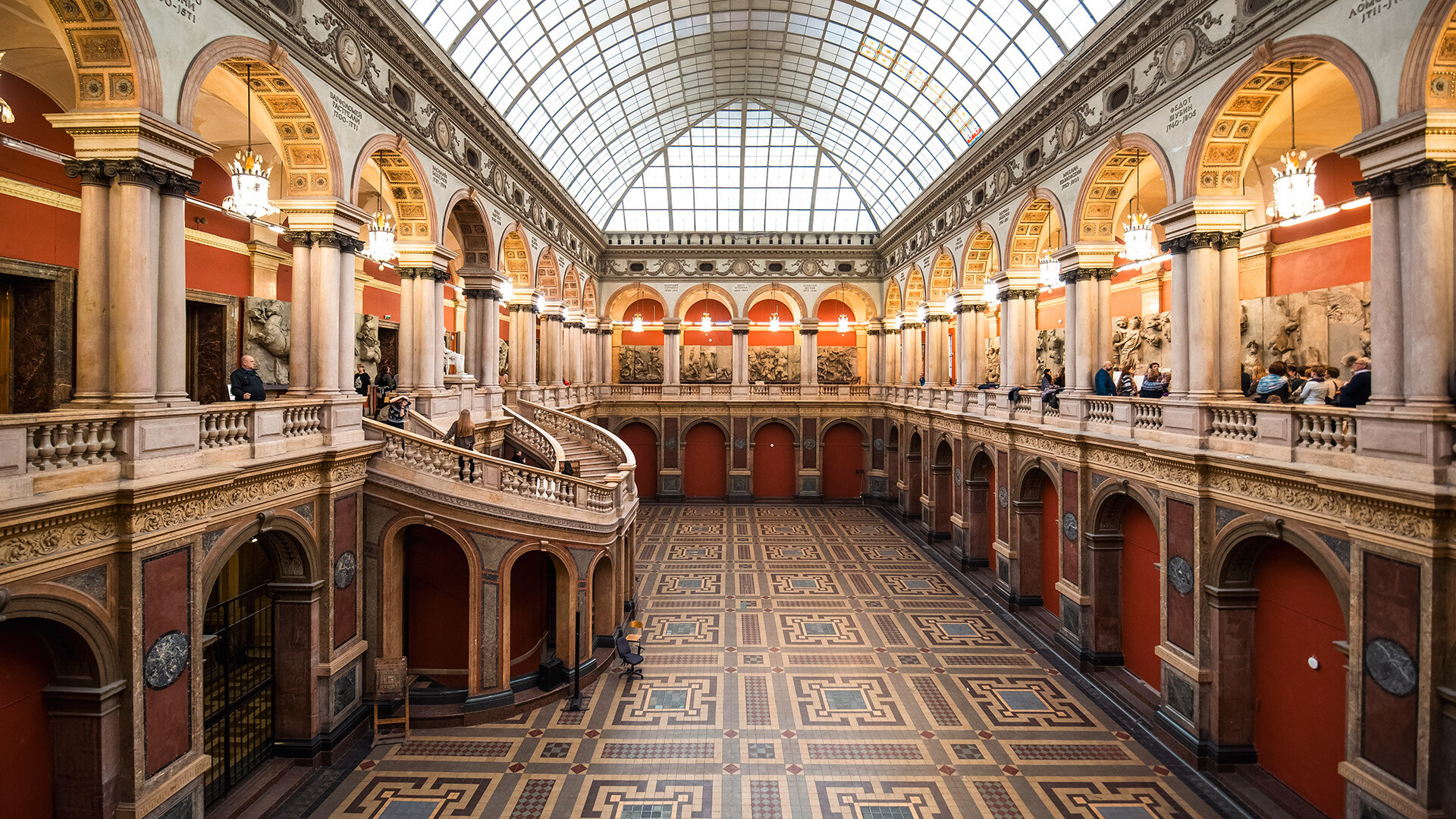
1. Find yourself in a functioning academy
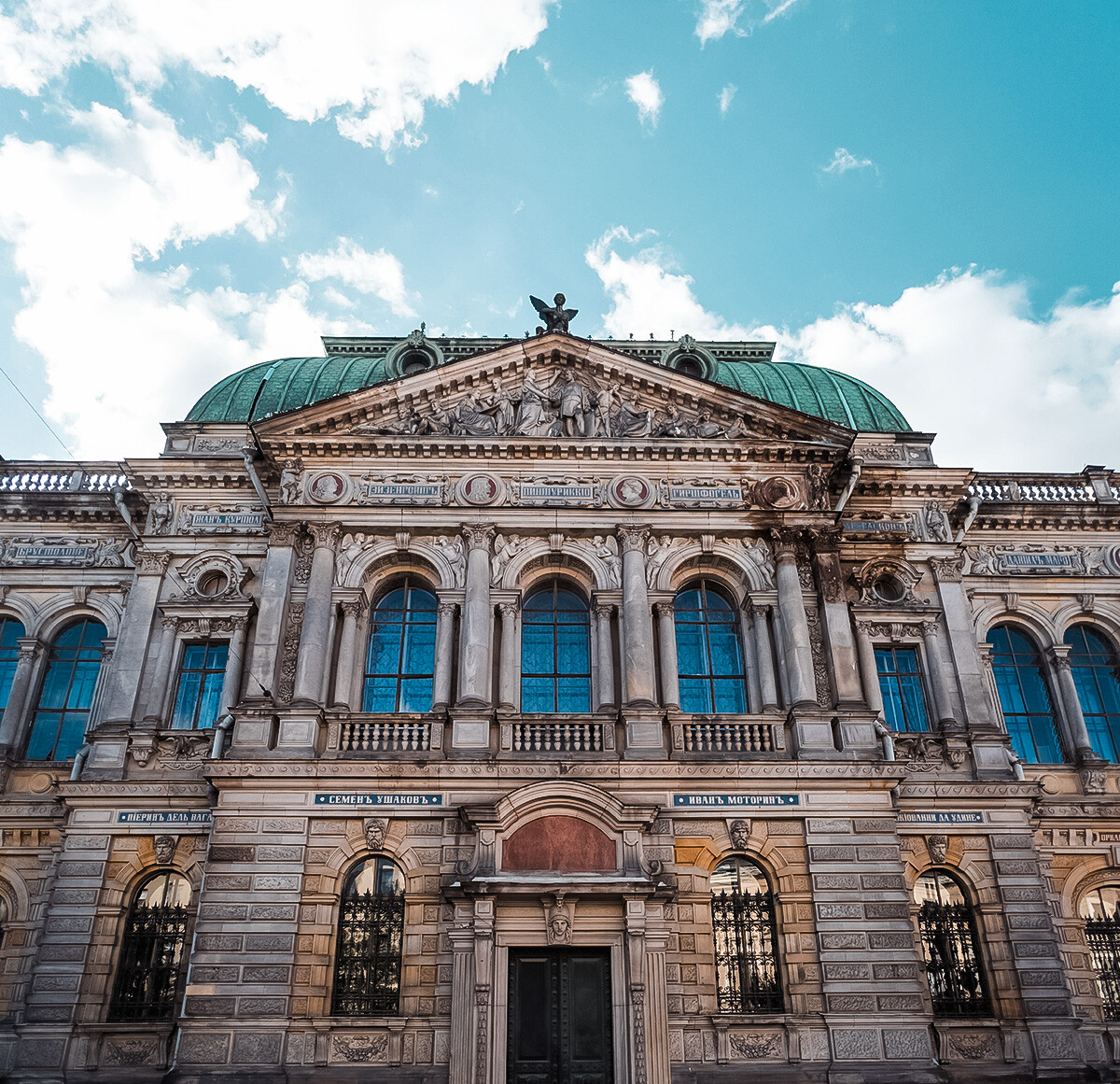
The Central Technical School of Drawing was founded in 1876. For its establishment, a banker and philanthropist by the name of Baron Alexander Stieglitz allocated a huge sum for that time – 1 million rubles in silver! Everyone who passed the mandatory exam in drawing could study there – both men and women, regardless of class. A few years later, a free public museum of decorative and applied arts was opened at the school – the first in Russia. Stieglitz allocated another five million rubles for it – so that students could visually study the art of different styles and eras. Incidentally, it was there that the treasures of Troy, discovered by Heinrich Schliemann, were first shown.
The museum grew so quickly that it was soon decided to build a separate building for it, which was designed by architect Maximilian Messmacher, the first director of the school. The palace in the eclectic style was built for 10 years and even members of the imperial family attended the grand opening.
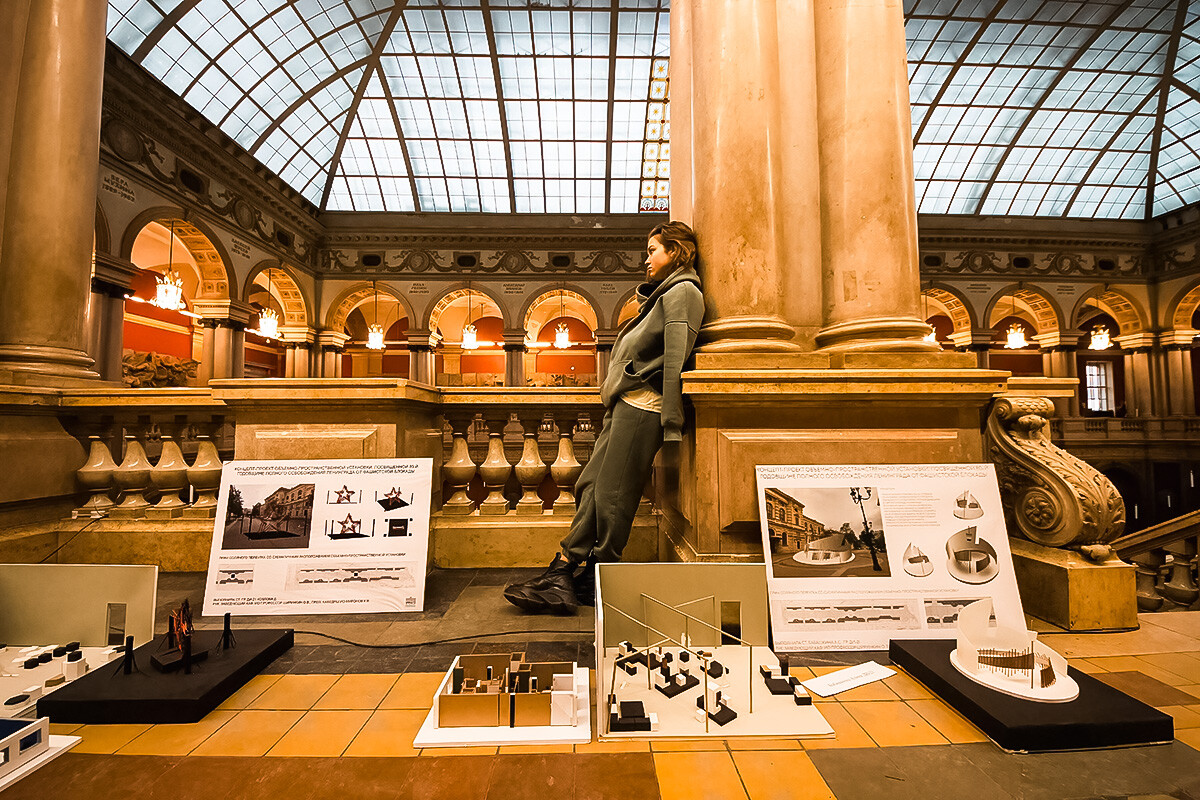
Today, in the halls of the museum, you can see students of the Stieglitz Academy of Art and Industry at work – future decorators, restorers, designers, artists and sculptors.
2. Admire the stunning interiors
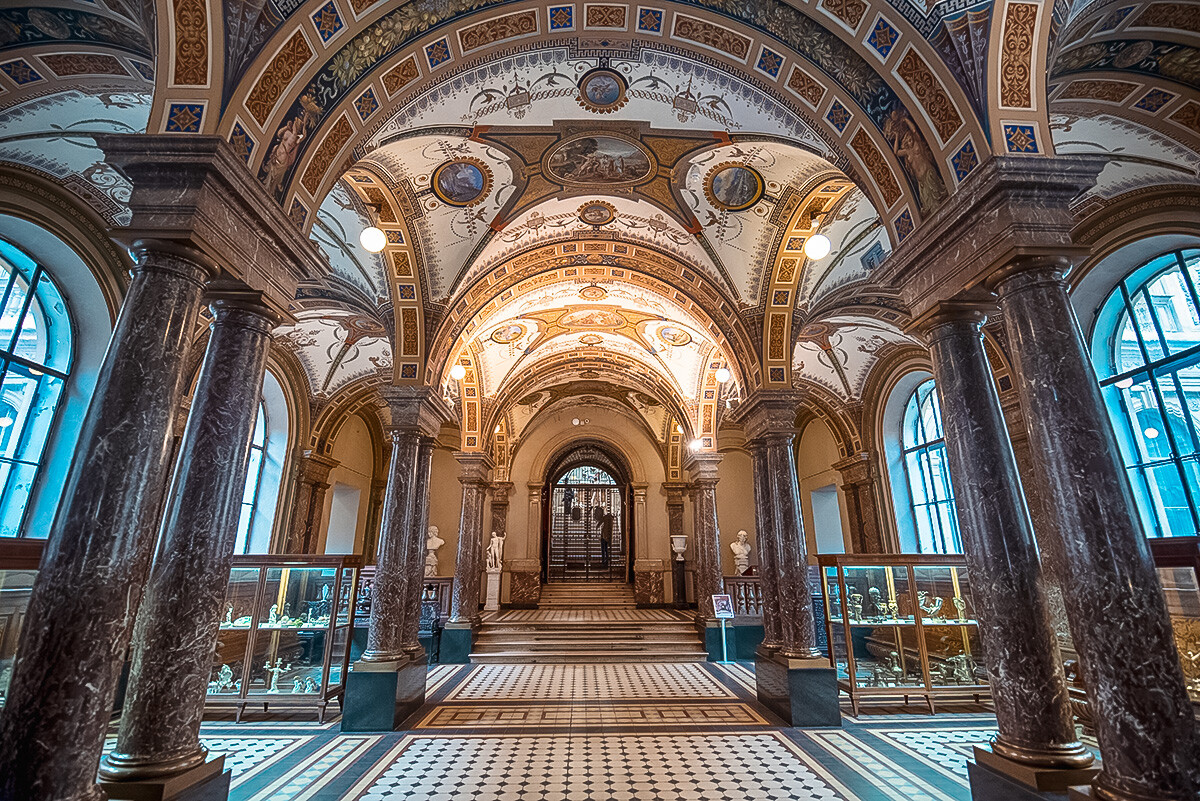
The Stieglitz Museum can rival even the Hermitage in the luxury of its halls.
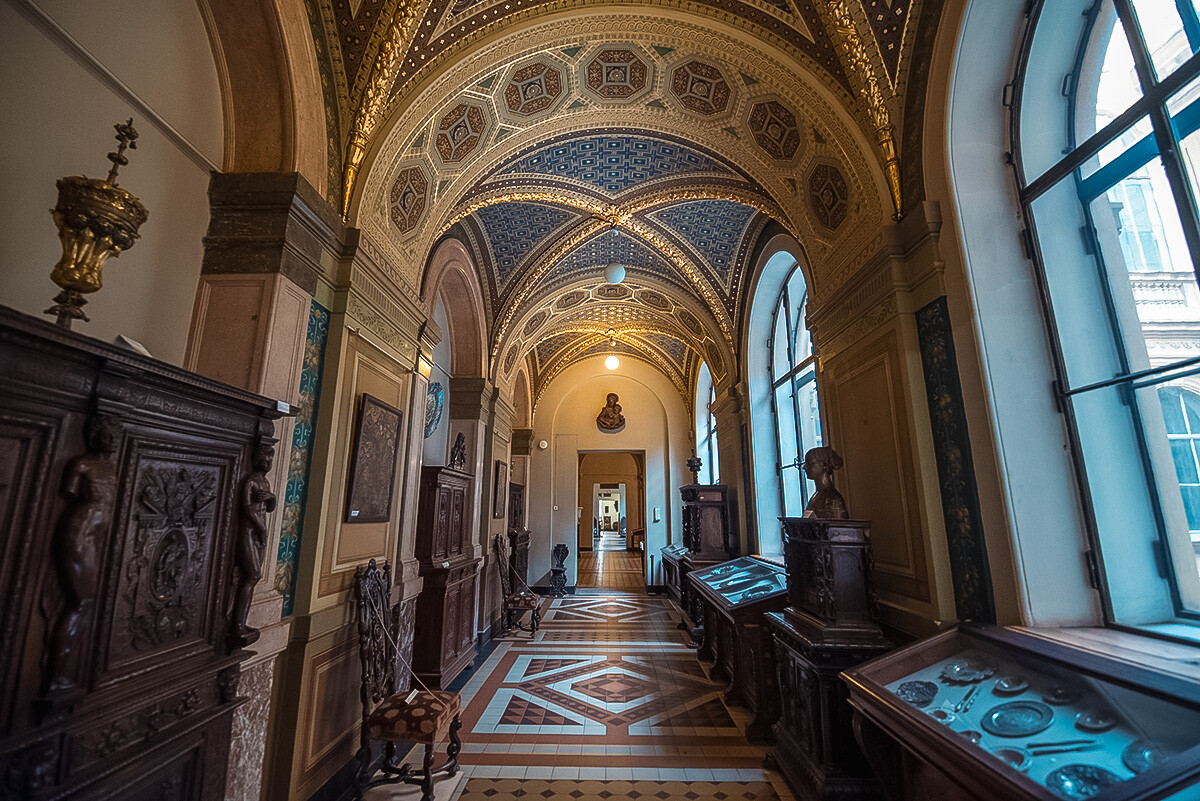
Its amazing interiors are like a precious box: each hall is more beautiful than the previous one.
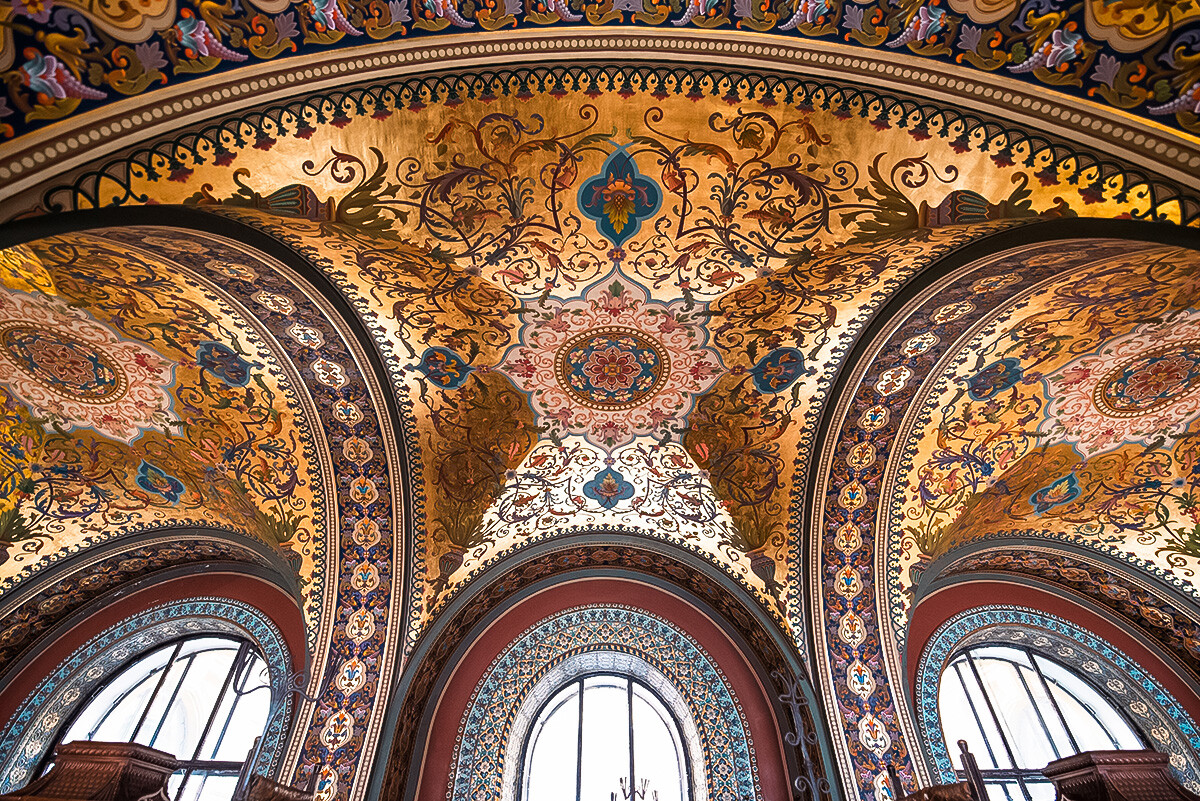
You can see copies of the paintings of the Raphael’s Loggias, a collection of tiled stoves, carved furniture and samples of porcelain from the largest European manufactories.
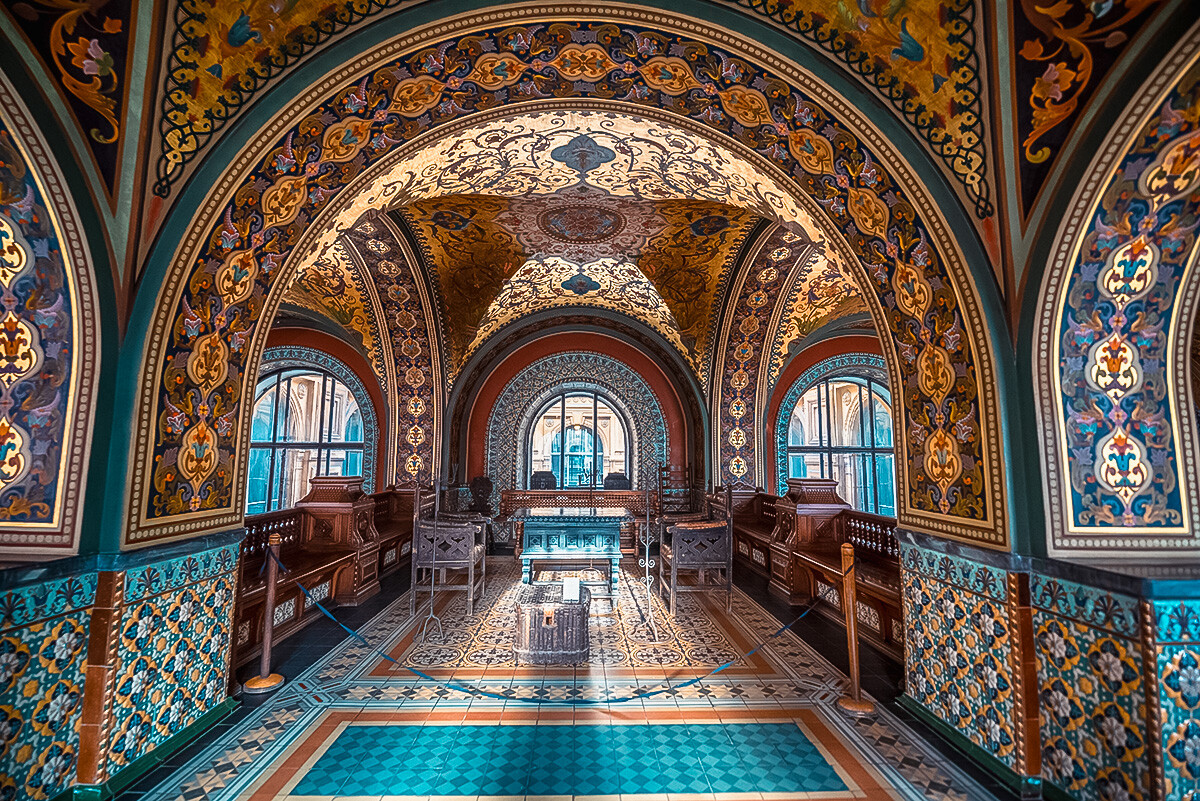
One of the most spectacular halls is the Russian one, which is affectionately called ‘Teremok’. With its rich decoration, it resembles the Moscow Kremlin’s Terem Palace.
3. Take a photo in the Great Exhibition Hall
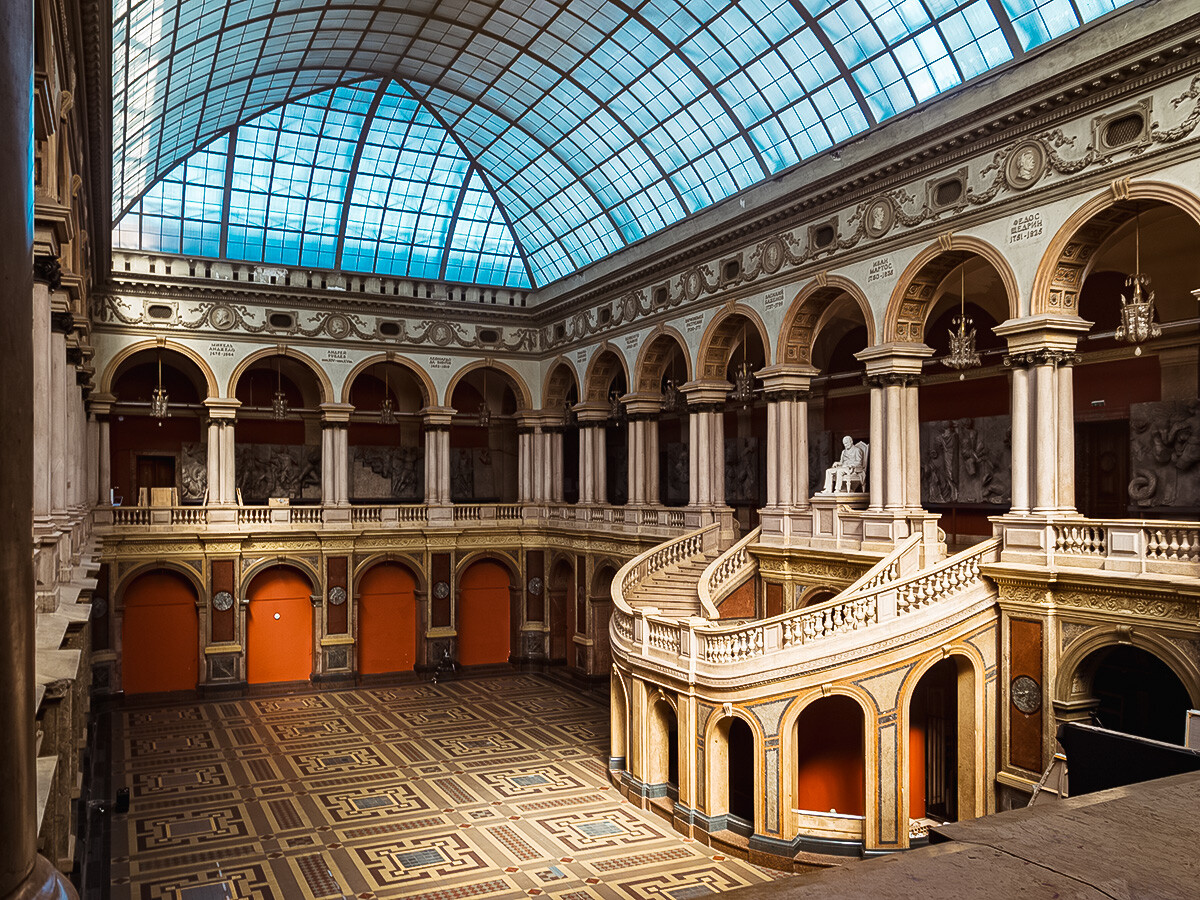
The most photogenic location in the city is also in this museum – it is the Great Exhibition Hall with a spectacular white-stone staircase and a glass roof. At the end of the 19th century, it was the largest – 34 by 17 meters! It is worth taking your time to examine it on the second floor, from where you can see the entire space of the hall. And then, take a few snaps on the stairs.
By the way, another great spot for spectacular photos is at the entrance to the museum. You will see three-tiered cast-iron lanterns there. They are decorated with figures of angels, which symbolize different types of art.
4. See a copy of the Pergamon Altar
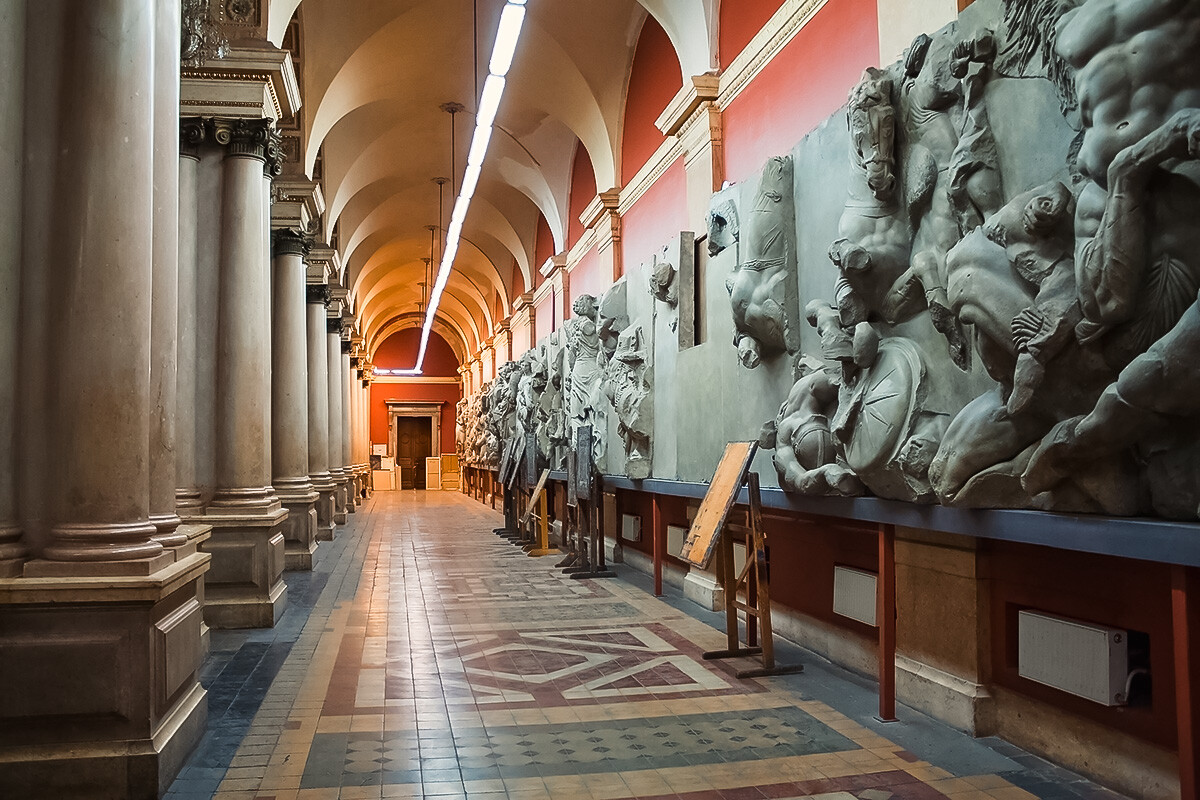
The ancient Pergamon Altar depicting the battle of the gods with giants was discovered by German archaeologists at the end of the 19th century, during excavations in the city of Pergamon, and transported to Berlin. In 1945, Soviet troops took it to the USSR.
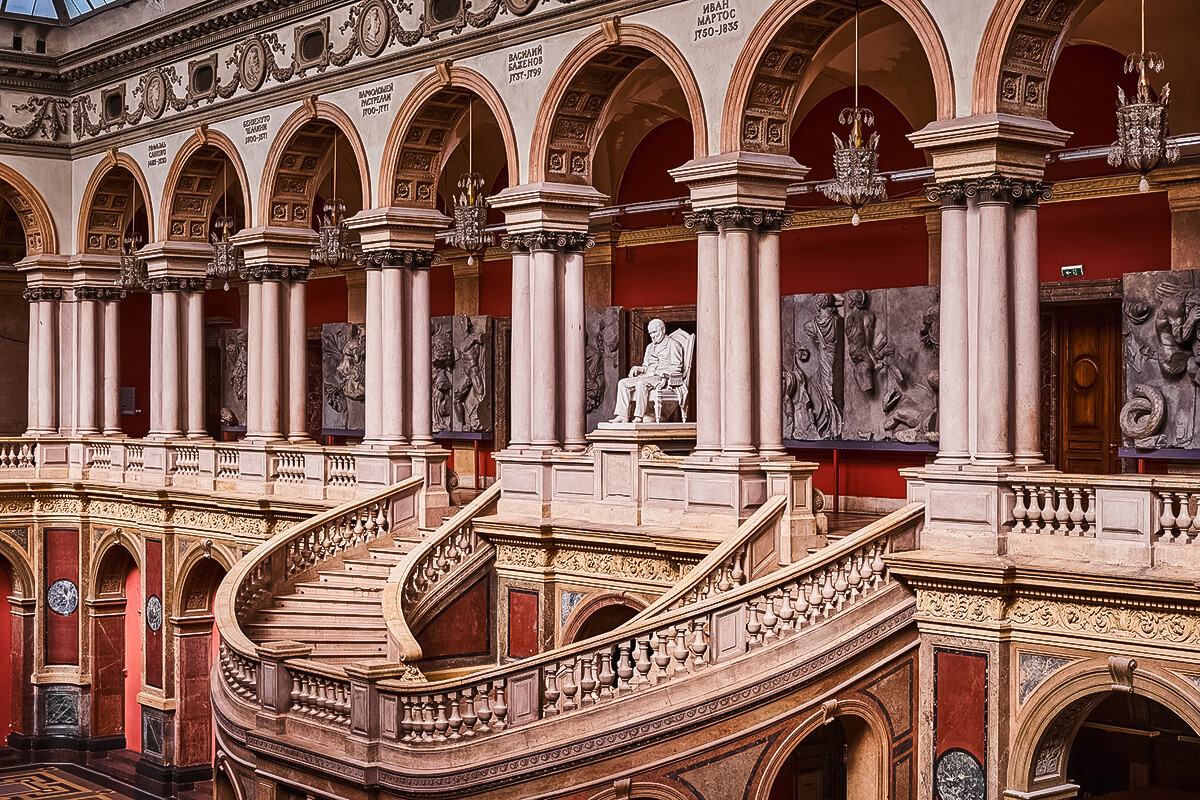
In 1954, the altar was exhibited in the Small Hermitage and, four years later, it was returned to Germany. But, before that, Academy specialists created a plaster copy of the ancient monument. In 2002, casts of the high reliefs of the Pergamon Altar were installed along the perimeter of the second tier of the Stieglitz Museum’s Great Exhibition Hall.
5. Get acquainted with the works of young artists
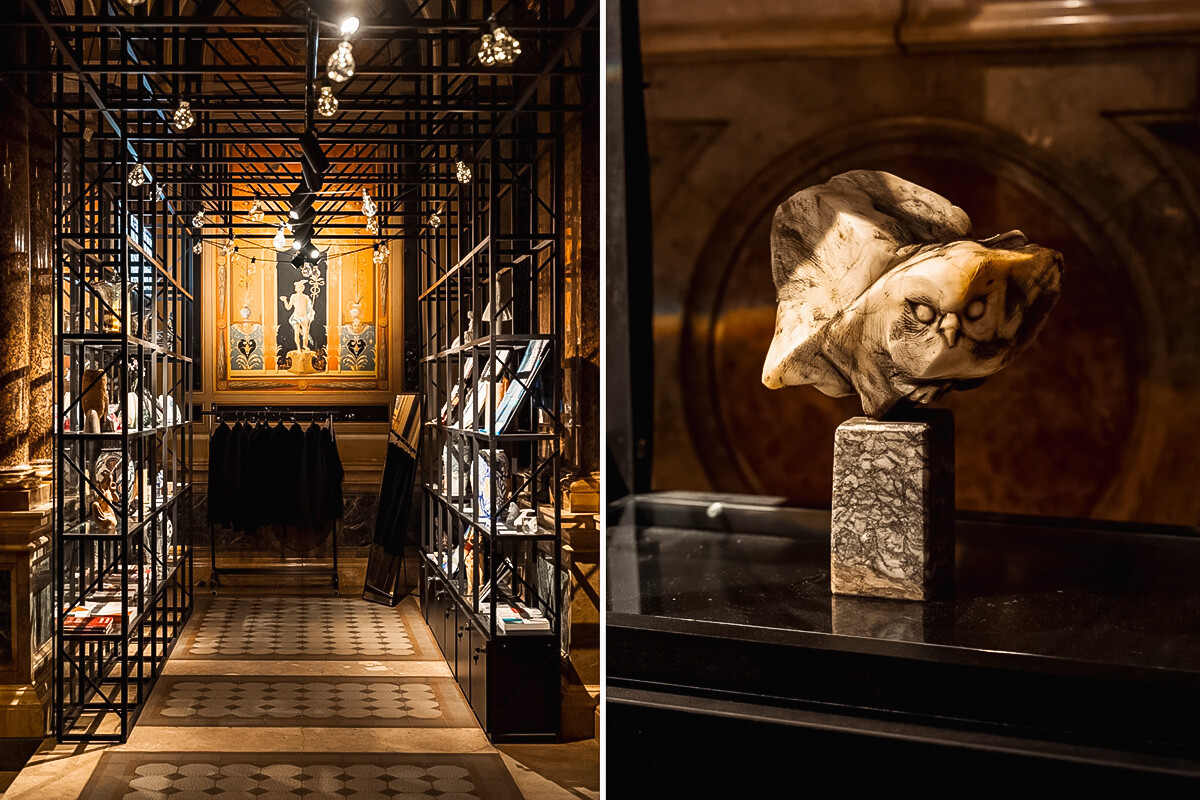
The Academy’s showroom presents works made by students: art objects, textiles, ceramics. By the way, during a walk through the museum, you can also see works created by the so-called ‘Stieglichans’.

